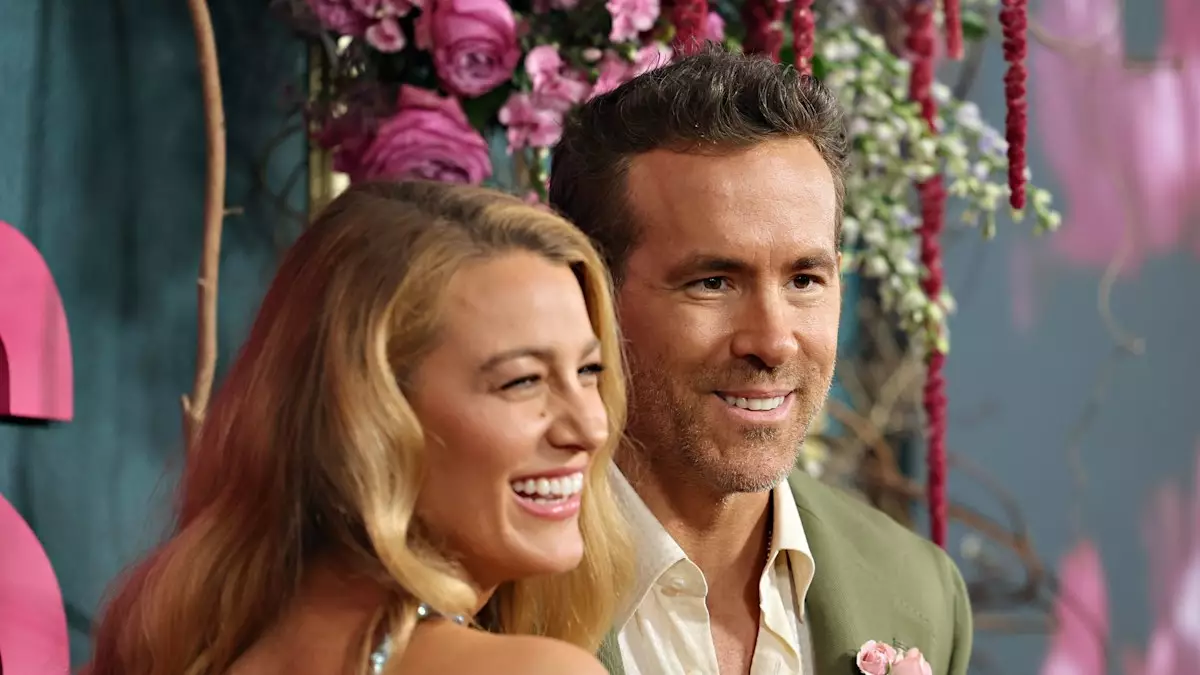Recently, the entertainment world has been abuzz with claims surrounding Blake Lively’s lawsuit against her co-star Justin Baldoni, director of “It Ends With Us.” The allegations include serious accusations of sexual misconduct, which not only challenge Baldoni’s professional integrity but also threaten to mar Lively’s public persona. Within a tumultuous environment where reputations are at stake, Lively’s notable husband, Ryan Reynolds, has found himself unintentionally entangled in the matter. The lawsuit has cast a long shadow, with Reynolds’ name appearing in the mix due to his prior involvement in discussions related to the film.
The emotional gravity of lawsuits, particularly those involving alleged misconduct, extends beyond mere legal ramifications. It penetrates the personal lives of those involved, altering how they engage publicly and privately. For Ryan Reynolds, navigating such turbulent waters requires a balancing act between supporting his wife and maintaining his brand. The public’s scrutiny demands more than just personal loyalty; it necessitates a strategic response.
In a time of distress for his family, Ryan Reynolds has opted to shift his focus towards philanthropic endeavors, particularly the SickKids Foundation, which works relentlessly to support children in need. His decision to participate in charitable initiatives serves a dual purpose: it allows him to divert attention from the current legal battles and reinforces his public image as a caring individual outside of Hollywood scandals.
Reynolds shared a touching video demonstrating his commitment to SickKids, re-emerging in his iconic Deadpool suit alongside one of their daughters, effectively humanizing his celebrity persona. This gesture illustrates while his family is embroiled in a chaotic narrative, the commitment to social causes remains steadfast. Notably, his collaboration with actress Lynda Carter in the video also underscores a community of support, showcasing the power of solidarity among entertainers battling their personal controversies.
The support for Blake Lively in the wake of her lawsuit serves as a testament to the importance of social and industry support networks. Former co-stars and contemporaries have rallied around her, making a powerful statement regarding the collective stance against such allegations. The industry response hints at a broader movement—a unified front advocating for accountability and protection for those who might feel vulnerable in similar situations. This interconnectedness is vital, as it not only strengthens the resolve of individuals like Lively, but also promotes a culture of transparency and safety across sets.
However, the experience is not just about personal vindication. It acts as a pivotal moment for reflection on the experiences of many in the entertainment industry who have faced similar challenges. The collaborative expressions of support—from fellow actors to those connected via back channels—emphasize the need to uplift voices that seek to share their stories, even when difficult.
As Blake Lively’s lawsuit progresses and new revelations surface, both she and Ryan Reynolds illustrate the complexities of life in the public eye, particularly when faced with personal crises. Their journey epitomizes the struggles between maintaining a public persona, family integrity, and engaging in meaningful communal contributions. In lieu of the legal battle shadows, philanthropy becomes a beacon—a way to channel energy positively even amid uncertainty.
It is a reminder that even amidst controversies, public figures have the capacity to influence society through charitable initiatives. For Reynolds, this approach may not absolve the rising tensions within their household, but it certainly offers a pathway for constructive engagement. As they navigate this intricate landscape of challenges, Lively and Reynolds serve as reminders of the intricacies that lie beneath the glamour of celebrity life—where the stakes extend far beyond personal reputations to the welfare of the broader community. The world watches, but in the end, it is their actions in favor of those in need that may define their legacy the most.

